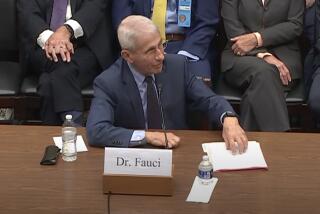Congress’ war on leaks
An angry Sen. John McCain (R-Ariz.) is calling for a special prosecutor to investigate leaks he says are designed to portray President Obama as a strong leader on national security issues. Without going that far, Sen. Dianne Feinstein (D-Calif.), the chairwoman of the Senate Intelligence Committee, says that recent leaks “endanger American lives and undermine America’s national security.”
She is proposing, among other things, that Congress provide “additional authorities and resources … to identify and prosecute those who violate various federal laws and non-disclosure agreements by revealing highly classified information.” Although she did not advocate prosecuting journalists, the senator probably spoke for many of her colleagues when she told CNN that part of the problem was that “we have an enormously smart constituency of journalists … who piece things together.”
So far most of the outcry has been directed at the administration, not the media, but in similar controversies in the past, critics have not been so discerning. So we would urge Congress — and the administration — not to criminalize the reporting of information that may have come into the possession of the media because a government official was indiscreet.
It’s understandable that McCain, Feinstein, Sen. John F. Kerry (D-Mass.) and other members of Congress are disturbed by a New York Times story in which unnamed officials described how Obama directed cyber-attacks on Iran’s nuclear program. That the United States and Israel had been targeting computers in Iran was widely suspected, but confirmation of the operation creates a diplomatic problem for the U.S. (It seems less plausible that this and other recent disclosures — for example, that Obama was personally involved in ordering U.S. drone attacks — threaten American lives.)
But it’s also clear why the New York Times, having obtained information about the administration’s actions, chose to publish it: to foster debate about what one of the paper’s editors called “two significant, history-making programs … the rise of cyber-warfare and the rise of drones.”
There has evolved in this country an effective if sometimes untidy division of labor: Government may strive to keep information secret, but once the media have information about matters of public concern, they may share that information with readers without fear of prosecution. It may sound like special pleading for a newspaper to urge that the campaign against leaks stop at the reporter’s door. But society as a whole benefits from public-spirited journalism that, in some cases, depends on the willingness of a government official to scale a wall of secrecy.
More to Read
A cure for the common opinion
Get thought-provoking perspectives with our weekly newsletter.
You may occasionally receive promotional content from the Los Angeles Times.










